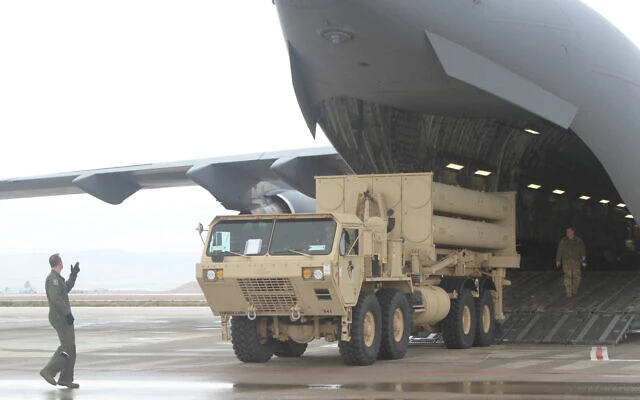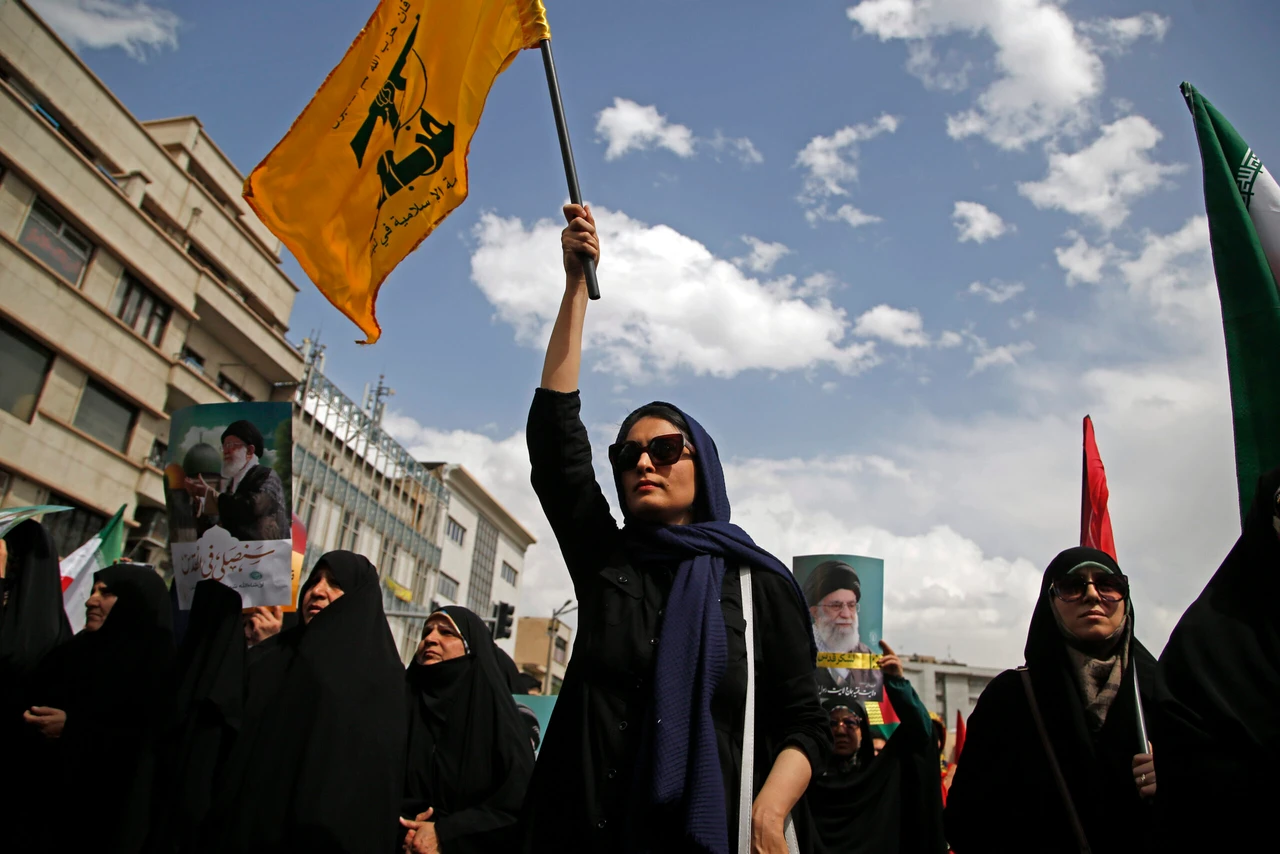US confirms additional THAAD battery for Israel Amid Rising Tensions with Iran
 US Air Force Airmen offloads a THAAD launcher from a C-17 GlobeMaster III at Nevatim Air Base, Israel for an exercise, March 1, 2019. (AFP Photo)
US Air Force Airmen offloads a THAAD launcher from a C-17 GlobeMaster III at Nevatim Air Base, Israel for an exercise, March 1, 2019. (AFP Photo)
The United States has confirmed plans to send a second Terminal High Altitude Area Defense (THAAD) battery to Israel as regional tensions escalate, according to reports from Channel 12.
The Pentagon announced on Sunday that it would deploy one advanced air defense battery to Israel, accompanied by American personnel to operate the system.
What is the THAAD system?
The Terminal High Altitude Area Defense (THAAD) system is a key component of the U.S. missile defense strategy, designed to intercept and destroy short-, medium-, and intermediate-range ballistic missiles during their terminal phase of flight. Utilizing advanced radar and tracking technologies, THAAD can engage threats at altitudes of up to 150 kilometers (93 miles) and ranges of 200 kilometers (124 miles).
Each THAAD battery comprises six mobile launchers, equipped with a total of 48 interceptors, as well as sophisticated radar and command and control systems. The system is deployed on truck-mounted platforms, allowing for rapid relocation and flexibility in response to emerging threats, making it an essential asset in enhancing regional security.
Imminent Israeli retaliation against Iran
Recent leaks from U.S. intelligence sources have shed light on Israel’s extensive military preparations against Iran, coinciding with U.S. President Joe Biden’s comments indicating he has a “good understanding” of Israel’s planned response to Iranian missile attacks.
The leaked intelligence documents provide critical insights into Israel’s military maneuvers, detailing large-scale exercises conducted by the Israeli Air Force (IAF) from October 15-16 that simulated potential strikes on Iranian targets.
Further assessments from the National Geospatial-Intelligence Agency indicate a heightened state of alert within Israeli forces, with increases in missile defense readiness and covert drone flights.
Iran has been preparing for an Israeli reprisal following its attack on October 1. Iranian officials assert that the strike was a direct response to Israeli operations in Lebanon, which resulted in the deaths of senior Hezbollah leaders. Furthermore, the attack was reportedly influenced by a July incident in Tehran that claimed the life of Ismail Haniyeh, a prominent figure in Hamas.



